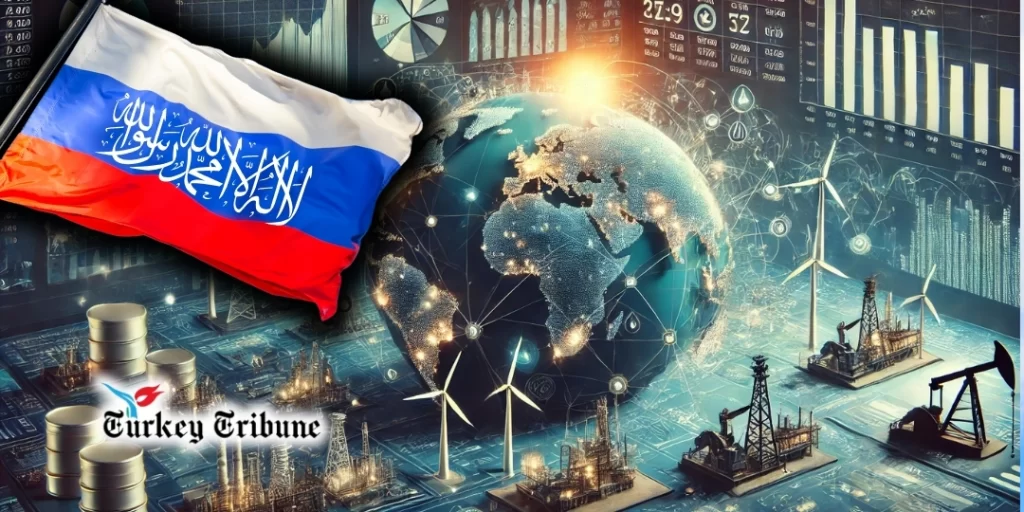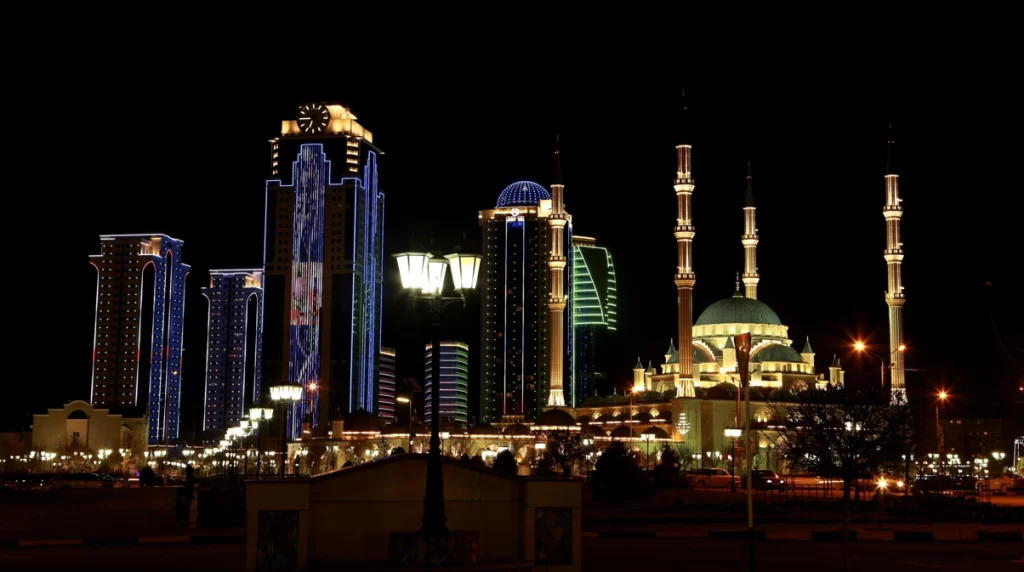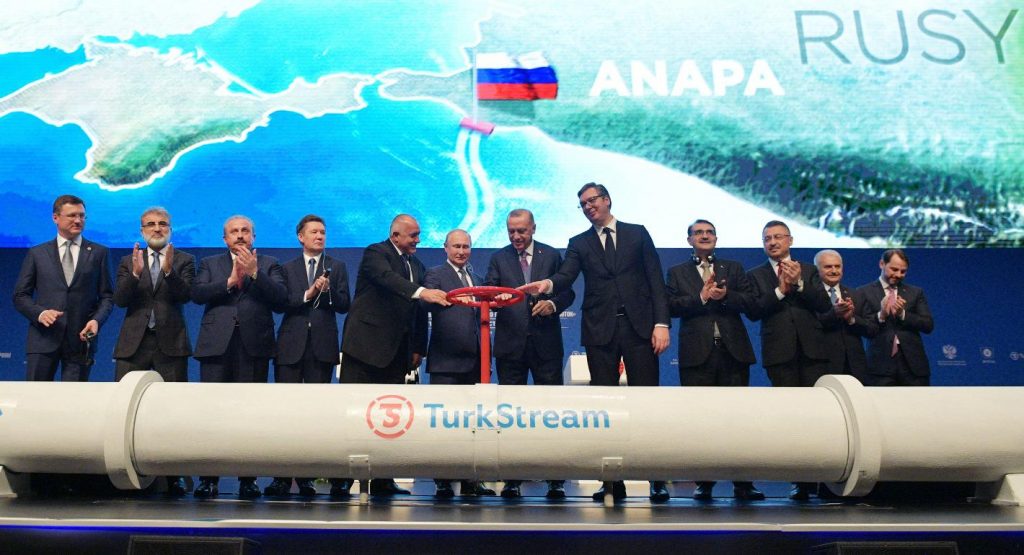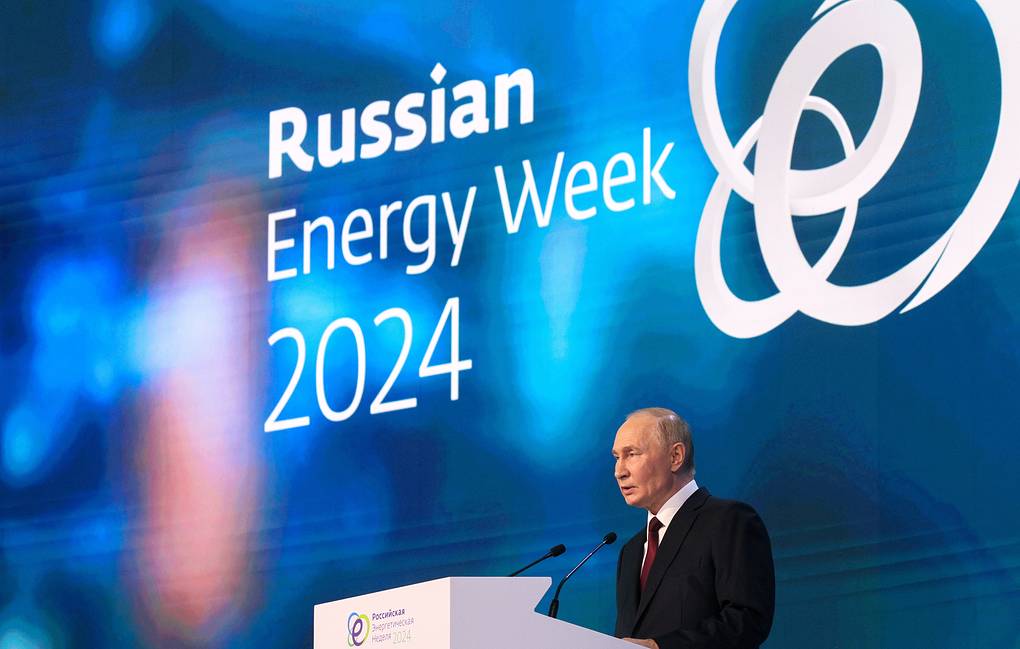(This article was written in English. Your browser might be translating it into your langauge. To read the original version, please select English.)
How Would Russia’s Conversion to Islam Reshape Global Energy Dynamics and Alliances?
A Hypothetical Shift in Russia’s Religious Identity
Russia, with its long-standing Orthodox Christian heritage, has historically positioned itself as a powerful yet complex global force. This deep religious identity influences its culture, politics, and alliances. However, Islam is not unfamiliar within Russia’s borders. Regions like the North Caucasus, Tatarstan, and Bashkortostan have significant Muslim populations. Islam is already part of Russia’s socio-political fabric. But what if the entire nation embraced Islamic principles?

Such a transformation could redefine Russia’s energy policies and reshape its relationships with Muslim-majority countries. It could also shift the balance of power in global energy markets. For years, Russia has balanced Western pressures with strategic alliances in the Muslim world. Its energy diplomacy with nations like Saudi Arabia, Iran, and Turkey currently relies on practical, economic considerations. But what would happen if shared religious values entered the equation? Could an Islamic Russia form stronger, more meaningful ties with these nations, creating a new axis of energy power?
Previous Article: A New Global Order Theory: What if Russians convert into Islam?
Moreover, Islam’s principles of justice, fairness, and stewardship would likely impact Russia’s domestic energy policies. Russia’s management of its vast natural resources might shift toward more sustainable practices, reflecting Islamic environmental ethics. The introduction of Islamic financial systems could change how energy revenues are handled and distributed, aligning them with Shariah law’s focus on fairness and equity.
Though this scenario may seem distant, it urges us to rethink religion’s role in shaping national identities, global markets, and alliances. The impact of such a transformation would be revolutionary, particularly in energy geopolitics.
Islam’s Potential Influence on Russia’s Domestic Energy Policy
Shariah-Compliant Financial Systems and Oil Revenues
If Russia were to embrace Islam, one of the most immediate impacts would likely be on the way it manages its vast oil and gas revenues. Islamic finance, governed by Shariah law, prohibits certain financial practices like charging interest (riba) and speculative investments (gharar). Instead, it promotes ethical, transparent, and socially responsible investments. For Russia, which relies heavily on oil and gas exports to fund its economy, the shift to a Shariah-compliant financial system would require significant adjustments in how these revenues are collected and distributed.
A core tenet of Islamic finance is the equitable distribution of wealth, which could lead to major changes in how Russia taxes and manages its natural resources. Instead of the current model, where energy profits largely benefit a small elite and central authorities, a more Shariah-compliant model might push for broader redistribution across society. Revenues could be directed towards public welfare projects, such as healthcare, education, and infrastructure, reflecting Islamic principles of social justice and communal responsibility. This could potentially reduce income inequality, a persistent issue in Russia, and build a more inclusive economy.

In addition, Russia’s oil and gas revenues might be reinvested in ways that align with Islamic ethical guidelines, focusing on sustainable development and socially responsible projects. Large infrastructure and energy projects could be financed through Islamic bonds (sukuk), which are asset-based and promote ethical investment. This would not only transform Russia’s domestic energy financing but also open new opportunities for collaboration with Muslim-majority countries that are already familiar with Shariah-compliant investment models.
Environmental Stewardship and Energy Sustainability
Islamic principles emphasize environmental stewardship, teaching that humans are caretakers (khalifah) of the Earth and should use its resources responsibly. This could greatly impact how Russia handles energy extraction. Currently, Russia’s energy sector focuses on maximizing output, often at the cost of sustainability. An Islamic framework, however, would prioritize long-term sustainability over short-term profit, promoting eco-friendly extraction methods.
Recomended Article: Turkey’s Potential BRICS Membership: A New Strategic Alignment?
This shift could push Russia to invest more in renewable energy sources like solar and wind. It would align with Islamic values that promote balance and responsibility in resource use. Additionally, an Islamic Russia might push for stricter environmental regulations in the oil and gas sectors. This could reduce the environmental damage caused by drilling and pipelines. Such actions would not only reflect Islamic principles but also support global sustainability efforts, positioning Russia as a potential leader in green energy.
By adopting Islamic ethics in energy policy, Russia could transform both its domestic energy landscape and its global role, moving toward a fairer and more sustainable resource management model.
Strengthening Ties with Muslim-Majority Energy Giants
If Russia embraced Islam, it would likely reshape its relationships with key energy players in the Muslim world. Countries like Turkey, Saudi Arabia, Qatar, and Iran are already crucial partners in global energy markets. A shared religious identity could deepen current collaborations and strengthen alliances. This shift could also lead to the formation of a more unified energy bloc. Such a bloc would have the potential to exert significant influence on the global stage.

Russia-Turkey: A Strategic Energy Partnership
Turkey and Russia have maintained a pragmatic energy relationship for years, with projects like the TurkStream pipeline underscoring their cooperation. While their current partnership is driven by economic necessity, an Islamic Russia might foster closer ties based on shared religious values. This newfound commonality could create stronger bonds of trust, making it easier to collaborate on energy projects, such as nuclear energy development, and address regional challenges like energy security.
The shared religious framework could also help resolve geopolitical differences, such as their varying positions in the Syrian conflict or competition in the Black Sea region. An Islamic identity could pave the way for deeper alignment in energy strategy and strengthen their regional influence.

Gulf States: New Opportunities with Saudi Arabia, Qatar, and Iran
Russia’s relationship with Gulf states—particularly Saudi Arabia, Qatar, and Iran—has been shaped by shared energy interests, especially through organizations like OPEC. A religious shift in Russia could enhance these relationships, creating deeper energy cooperation based on both economic and ideological grounds.
Some potential outcomes of this shift include:
- Enhanced OPEC Cooperation: A shared Islamic identity could lead to stronger coordination within OPEC. Russia could play a central role in stabilizing oil prices. This would involve close collaboration with Saudi Arabia and Iran.
- Increased Joint Investments: Russia might attract investments from Gulf nations for energy infrastructure projects. These could include LNG terminals and pipelines. Such projects would foster deeper economic ties between Russia and the Gulf.
- Shariah-Compliant Financing: Large energy projects could be funded through sukuk (Islamic bonds). This would appeal to investors in Muslim-majority countries. It would also promote ethical investments that align with Islamic principles.
- Collaboration on Renewable Energy: Islam’s emphasis on environmental stewardship could drive cooperation in renewable energy. Russia could align with Saudi Arabia and Qatar in developing solar and wind projects.
A New Energy Axis?
An Islamic Russia, working in tandem with Muslim-majority energy giants, could potentially form a powerful new energy bloc. This coalition would control a significant share of the world’s oil and gas reserves, positioning it to challenge Western energy markets and play a dominant role in shaping global energy policies.
With combined resources and a shared vision rooted in Islamic principles, this alliance could not only influence global energy prices but also pioneer more ethical and environmentally responsible energy strategies.
In conclusion, the religious transformation of Russia would likely strengthen its ties with Muslim-majority energy powers, reshaping global energy dynamics and potentially creating a more cooperative and ethically-driven energy market.
Russia’s Influence on Global Energy Markets Post-Conversion
If Russia were to adopt Islam, its influence on global energy markets would undergo a significant transformation. As one of the largest producers of oil and natural gas, Russia plays a critical role in meeting global energy demands, particularly in Europe and Asia. A conversion to Islam would not only reshape its domestic policies but also have a profound impact on its international energy relations, affecting everything from pricing strategies to alliances with other major players in the industry.
Recomended Article: The Abolition of the Caliphate: A Missed Opportunity for Global Stability
Shift in Alliances and Export Strategies
Russia’s current energy relationships with Western nations are largely transactional, focused on economic and strategic interests. An Islamic Russia might shift its focus to strengthening ties with Muslim-majority countries. Especially in the Middle East and North Africa (MENA) region. Shared religious values could drive Russia to change its export strategies. It might prioritize partnerships with Saudi Arabia, Qatar, and Iran over its traditional European customers.
This shift could impact global energy dynamics in several ways:
- Reduced Reliance on Western Markets: An Islamic Russia might lower its dependence on Western energy markets. This is particularly relevant in Europe, where political tensions complicate trade. Instead, Russia could redirect oil and gas exports toward Asia and Muslim-majority nations, building stronger ties with key energy consumers in the East.
- Reformation of Energy Pricing Structures: Islam’s focus on fairness could lead Russia to promote ethical pricing in global energy markets. By working with other Muslim-majority countries, Russia might push for pricing systems that benefit both producers and consumers, potentially creating a more stable and less volatile market.
Impact on Energy-Dependent Nations
Russia’s energy exports are vital for many energy-dependent nations, particularly in Europe and Asia. A significant reorientation of its energy strategies could leave these nations scrambling for alternative suppliers. Europe, which relies heavily on Russian gas, could face serious energy shortages or be forced to depend on higher-priced alternatives from other suppliers. This could shift the balance of power in the global energy landscape, increasing competition for resources and potentially driving up energy costs for many nations.
In contrast, countries in the Muslim-majority world could benefit from Russia’s new priorities. With greater access to Russian energy at potentially more favorable terms, nations in the Middle East, South Asia, and North Africa could strengthen their economic and strategic positions.

Could Islam Provide a Framework for Global Peace and Justice in Energy Policy?
Islam’s ethical principles, rooted in justice, fairness, and stewardship, provide a compelling framework that could potentially reshape the global energy landscape. If Russia were to embrace Islam, its influence could extend beyond merely altering its own domestic and foreign energy policies. It might also inspire a broader shift towards a more equitable and responsible approach to global energy management. Islam’s teachings on resource distribution and environmental responsibility offer a pathway that could lead to a fairer energy system benefiting both producers and consumers alike.
Energy Equity and Fair Distribution
One of the core principles of Islam is the equitable distribution of wealth and resources. In an Islamic framework, energy would not be seen solely as a commodity to be exploited for profit, but as a communal resource that must be managed for the benefit of all. This approach could inspire new models for energy production and distribution that prioritize fairness. Russia, as an Islamic nation, could advocate for policies that ensure that energy access is not disproportionately controlled by a few wealthy nations, but is shared more evenly across the globe, particularly with energy-poor countries.

This concept of equitable distribution could help address some of the imbalances that currently exist in global energy markets, where rich, energy-producing nations often dominate at the expense of poorer, energy-dependent ones. Russia could push for international agreements that promote shared access to energy resources, making energy security a more inclusive goal.
Environmental Responsibility in Islamic Energy Policy
Islam’s emphasis on stewardship (khalifah) and ethical resource management could lead to more sustainable global energy policies. If Russia embraced Islam, it might become a strong advocate for renewable energy. This could push for a balance between energy demands and environmental protection. By collaborating with Muslim-majority nations, Russia could promote a global energy agenda focused on reducing waste, minimizing harm, and advancing clean technologies.
Could adopting Islamic values in energy policy make Russia and the broader Muslim world leaders in advocating for a fairer, more just, and environmentally responsible global energy system?
Previous Article: A New Global Order Theory: What if Russians convert into Islam?
An Invitation to Explore Islam and the Path of Sunnah
This article explored a hypothetical scenario where Russia embraces Islam, considering how such a shift might impact energy policies and global relations. Islam’s core principles of justice, fairness, and care for the Earth provide guidance not only for nations but for individuals, too. Following the true path of Islam, especially through the teachings of Ahl al-Sunnah (the Sunni tradition), brings peace, ethics, and compassion to all. The Sunni tradition means to believe, live and worship “exactly” as the prophet Muhammed “peace be upon him” did. The greatest scholar of the Sunnah Path is Imam Azam Abu Hanifa, those who follow him are called Hanafis. If you’re curious to learn more about Islam and its beautiful values, you can visit Hakikat Kitabevi. For only russian speakers you can visit veraislam.ru. Islam offers a path of truth and harmony for all humanity.

















